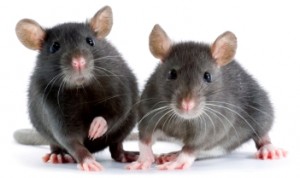 The description of Rentokil’s Rodine Rat & Mouse poison includes the following assurance: “Contains natural whole wheat.” Doesn’t this take the sales appeal of healthy ingredients just a bit too far?
The description of Rentokil’s Rodine Rat & Mouse poison includes the following assurance: “Contains natural whole wheat.” Doesn’t this take the sales appeal of healthy ingredients just a bit too far?
Not being in the market for rat poison myself, I came across this information in the Feedback section of New Scientist. The editors raise a few interesting points:
[W]hat [are] the mice and rats … expected to make of this. Will the mummy and daddy rodents take the poison home and say to their children, “Eat up, it’s good for you. It’s made from whole wheat”?
Or are the humans who use the poison supposed to feel good about killing small animals using healthy organic ingredients?
Perhaps what’s happened is that the word “natural” – so thoroughly overused and misused for products on supermarket shelves — is now so completely devoid of meaning that we don’t even notice it anymore.
Update 12/27/10:
A follow up to this story: A reader writes New Scientist (11/13/10): “It could be a warning to rats with gluten allergy or intolerance, who would be advised to use an alternative gluten-free poison.”
Related posts:
Estranged species
Stoned wallabies make crop circles
Resources:
Image source: Pet Care Portal
Feedback, New Scientist, October 2, 2010, p. 48 (subscription required)


Sorry, comments are closed for this post.